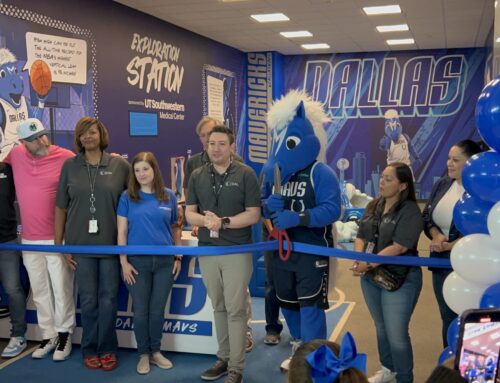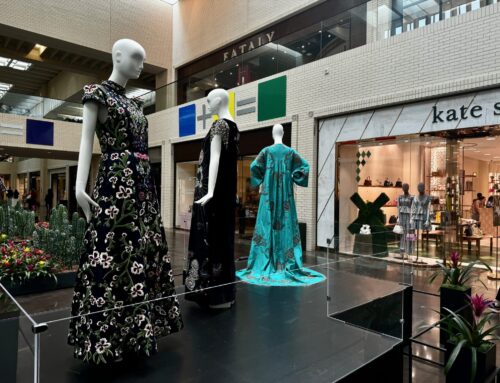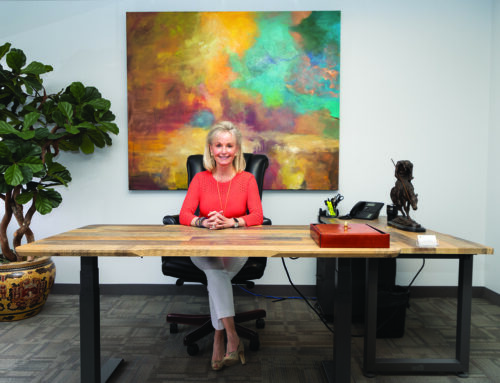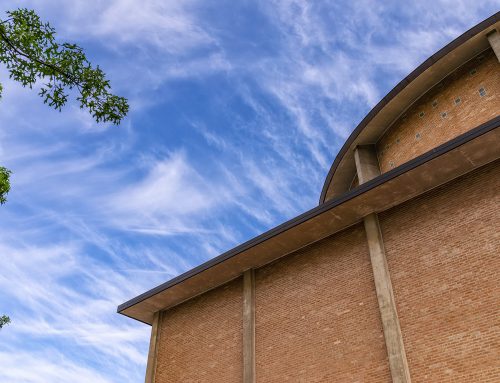The volunteer organization Friends of Northaven Trail recently provided a survey to District 11 and District 13 candidates concerning the trail’s future.
Since Northaven Trail will run from District 11 and across 13, the organization compiled the survey to learn the candidates willingness to look for alternative funding for its completion.
Warren Parham, Friends of Northaven Trail president, says the schedule of funding for the city’s 2012 bond program will delay the completion of the trail from the original target of 2014 to 2017. He says it’s not only importation to learn what each candidate will do to get the project completed, but how they feel about other issues like the city’s Bike Plan.
Parham says though District 11 candidate Lee Kleinman was a founding board member of the volunteer organization, he is not currently on the board and the survey is not an endorsement for anyone.
FoNHT 2013 Dallas City Council Election Survey
What are your views on the City’s continued investment to build out a hike and bike trail system (Dallas Bike Plan)?
District 13 candidates
Jennifer Staubach Gates: To be a great city, we must have great basics, and that means smooth roads, great schools, strong police and fire protection and parks and rec centers. With better parks, rec centers and trails, we can create a healthier and safer community that will attract new families to our city.
Leland Burk: I support the Dallas Bike Plan and feel it is not only an important quality of life issue for our residents, but is important in attracting new business to Dallas. Companies rate community amenities very highly, along with low taxes and an educated work force when deciding to relocate. I personally enjoy biking on the trail!
District 11 candidates
Lee Kleinman: I am a strong supporter and proponent of an expansion of the Dallas Bike Plan as well as the expansion of the off-street Hike and Bike Trails. These quality of life projects bring neighborhoods together which reduces crime, has a positive effect on public health in the form of exercise (reducing obesity) and clean air (less driving). They also provide much needed green space in areas that have little parkland. The NHT for example turned a marginally maintained easement into a 2-mile linear park. Working with Oncor to make this happen shows their commitment to the quality of life for Dallas residents.
Ori Raphael: I support the hike and bike system, but believe before we spend additional tax dollars, we must prioritize funding for our massive infrastructure needs. I feel that there is a great opportunity to continue funding our hike and bike trail system through public-private partnerships.
As a component of that Plan, what are your views on The Northaven Trail (NHT) system, which starts in District 11 and is planned to continue through District 13 to the Walnut Hill DART Station?
Ori: Same view as stated above.
Lee: The NHT is a key component to the plan as the only east-west trail in North Dallas. The corridor parallels several key traffic patterns including LBJ, Forest Lane and Royal Lane. The intermodal connections to both the Forest Lane Station and the Walnut Hill Station enables the NHT to contribute to the overall transportation plan of Dallas.
Leland: Since this is in the heart of my district, I support the plan. I am proud to have the support of Ann Margolin, who dedicated a portion of her discretionary funds to help build the Northaven Trail. I look forward to working with your organization and our city to expand the trail system.
Jennifer: As a mother of two and an aunt to more than 17 nieces and nephews, all of which live in our Council District, I know first hand the value of our local parks, greenspaces, trails and rec centers. I support the Northaven Trail concept, as long as funding is available.
Would you support funding the NHT expansion into District 13?
Lee: Yes. Trail projects have been shown to have a high amount of impact relative to their cost. The cost per encounter for a trail is lower than that of many other uses for city bond money. Expanding into 13 is important to create additional parkland in an area where there is little. Also, this will give trail access to several churches, schools and community centers such as the YMCA. It gives residents and opportunity to walk or ride to these facilities without having to drive a car.
Ori: Again, if funds can be raised through private donations and corporate support I am fully in favor. I am not in favor of using tax dollars at this time.
Jennifer: I would support the expansion of the NHT into District 13. We must consciously work to grow these types of amenities for our City to compete with up and coming cities like Austin, Portland, Boulder and Seattle who are able to attract young families for their great quality of life.
Leland: Yes.
The expansion of the NHT through District 13 is largely a City obligation to fund through the 2012 voter-approved Bond Program. The City has said that the expansion of the NHT may take until 2017 to initiate from Preston Road. With regards to the expansion schedule, do you think it is to slow, about right, or too fast? Please explain?
Jennifer: The expansion of the NHT will be a great amenity for the entire City. In order to ease the burden and speed up the process, I would look to the private sector for funding to supplement the City bond funding.
Leland: I would like to see the schedule advanced, but I also feel our infrastructure needs concerning streets and alleys should remain a very high priority. As you know, the city manager and council set spending priorities based upon the needs of each council district and those priorities and dates have been set. I would certainly like to review the bond expenditure schedule for District 13 and see what can and should be done.
Ori: Bond money is spent according to a strict criteria set forth by the city manager and approved by the council. Discussion on when these expenditures should be made should have happened when the schedule was presented to council. I’m sure Ms. Koop and Mr. Kleinman were aware of the timing of these expenditures and therefore in agreement. I think the planning time takes too long and there could have been many ways of speeding up the process.
Lee: I think it is too slow. We should capitalize on the excitement and momentum created by the development of the first section. In North Dallas, this trail is something everyone is talking about. We should do what we can to leverage resources to accelerate the development plan.
As a Council Member, would you be willing to invest time to identify potential funding sources outside of the City’s bond funds in order to speed up completion of the Trail?
Ori: My emphasis will be to getting back to basics, balancing the budget and ensuring the core needs of my community are met. I will be happy to work on the community’s behalf in speaking with other entities, especially private corporations, organizations and individuals for endeavors like the trail.
Lee: Yes. There are several leverage opportunities to increase funding for the Trail. Dallas County has partnered with the City on this project and private donors have made significant contributions. I was instrumental in those partnerships and intend to continue to seek out additional funding sources for expansion.
Leland: Yes, I am a strong believer in public-private partnerships and with my business experience and civic involvement, I will certainly help in this effort.
Jennifer: If elected, I would use my position in the community to look for greater involvement from the private sector and nonprofits. More generous donations like the one from Virginia Cook, will help supplement the City’s bond funds and grow the NHT.
The Dallas Bike Plan was developed and recently modified to create a plan for development of a 300 mile system of interconnecting hike and bike trails. Do you see a benefit to the development of this system other than the recreational opportunities these trails will provide?
Jennifer: Yes, in addition to recreational opportunities, the bike plan also provides connectivity of the trails, and it serves a greater transportation purpose. The two projects are complementary.
Leland: As I stated above, expansion of our economic base by drawing new business to Dallas is critical to our future and quality of life issues are important to companies and people considering moving here. Health benefits and encouraging people to use alternative modes of transportation to improve our air quality are important factors as well.
Lee: Yes. I served on the Dallas Bike Plan Steering committee along with several Council Members and representatives from DART, Dallas County, NTCoG, DISD, etc. This system will enable bicycling in Dallas to be part of the transportation system. In addition to traffic relief, parking relief and air quality, this system interconnects our off-street trail system enabling people access to DART, shopping, restaurants and churches without the need to drive a car. It provides and option that was not there before.
Ori: These plans help draw new business to our city because business and people rank quality of life issues high on the list. However, low taxes and good schools are of critical importance too.
Soon there will be two ballot propositions presented to the Council for vote, which authorize the City to sell two pieces of parkland.
Proposition No. 1
Authorizing the city council to: (1) convey by sale or exchange up to approximately
25 acres of city park land contained in Joey Georgusis Park, which is located
near the intersection of Interstate Highway 30 and Cockrell Hill Road and which has
limited accessibility for recreational use, and (2) use the proceeds of the
conveyance for the enhancement of the City of Dallas park and recreation system.
Proposition No. 2
Authorizing the city council to: (1) convey by sale or exchange up to all of the city
park land contained in Elgin B. Robertson Park, which is located at Lake Ray
Hubbard and which is of limited use and accessibility to City of Dallas residents,
and (2) use the proceeds of the conveyance for the enhancement of the City of Dallas park and recreation system.
As a newly elected member to the Council, what are your views on selling park land, using City resources to acquire park land, and would you support initiatives like the two discussed below?
Ori: Yes.
Lee: Selling park land can become and emotional issue. Having served on the Park Board for five years I had the opportunity to understand what is in Dallas’ inventory and the utilization levels of Dallas residents. Initiating the sale of park land is done via referendums such as these. It is the only property in the city that goes through this process. I am in favor of both propositions. The land in Proposition 1 is irregularly shaped and situated in a light industrial area. It could never be used for any recreational purpose. The land in Proposition 2 is well outside the city limits and primarily benefits the residents of Rockwall County. Few Dallas residents use this area. I favor these propositions because the proceeds are designated for land acquisition and capital improvements within the City of Dallas as well as designated specifically for park projects. This will enable the park system to provide more services to Dallas residents.
Leland: I am in favor of both these Propositions.
Jennifer: I support Proposition No. 1. By selling this piece of undeveloped land that was donated to the City we can not only use proceeds to enhance parks that would serve more citizens, but the sale will also support a development project that will create new tax revenues for the City.
I support Proposition No. 2. . This park land is not adjacent to the City of Dallas and is expensive to maintain especially considering the number of Dallas residents it serves. It makes perfect sense that we should divest of this land and use the proceeds to enhance parks that serve a greater number of Dallas citizens.







